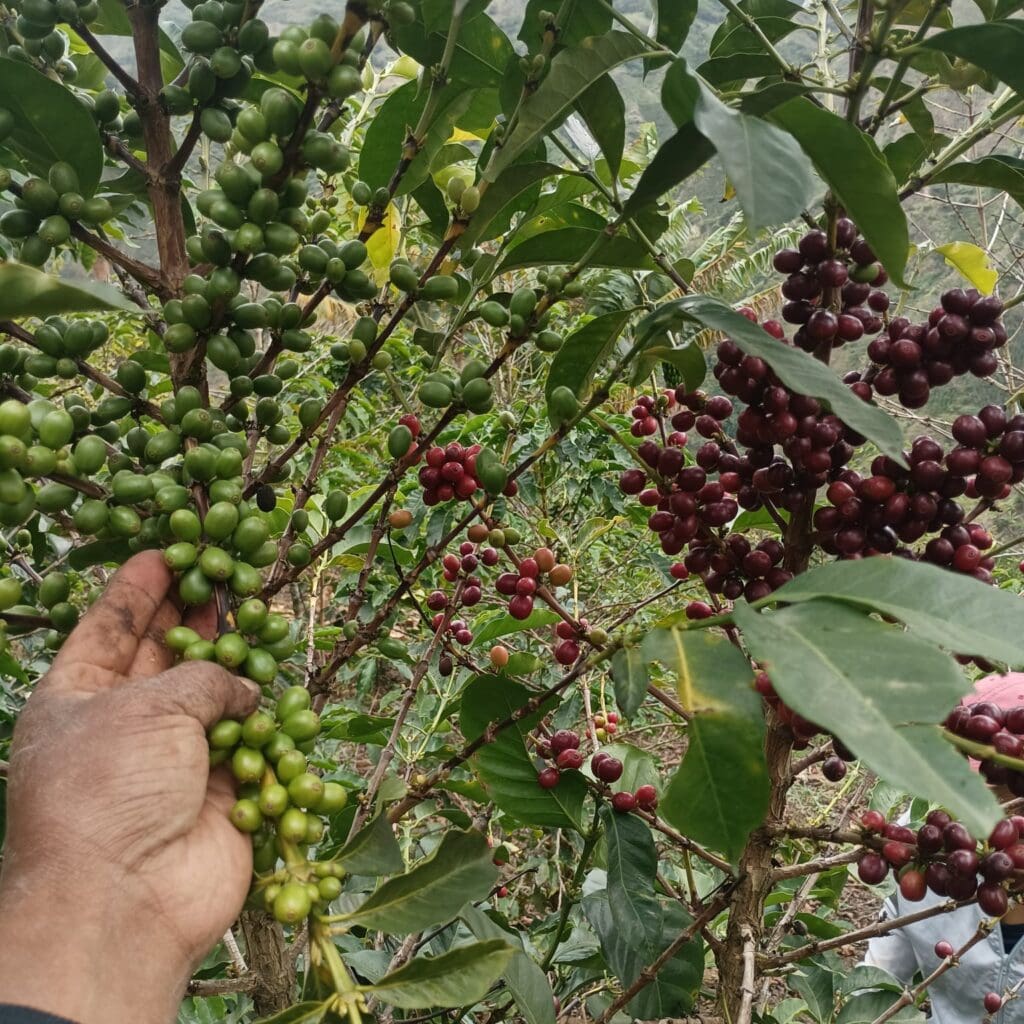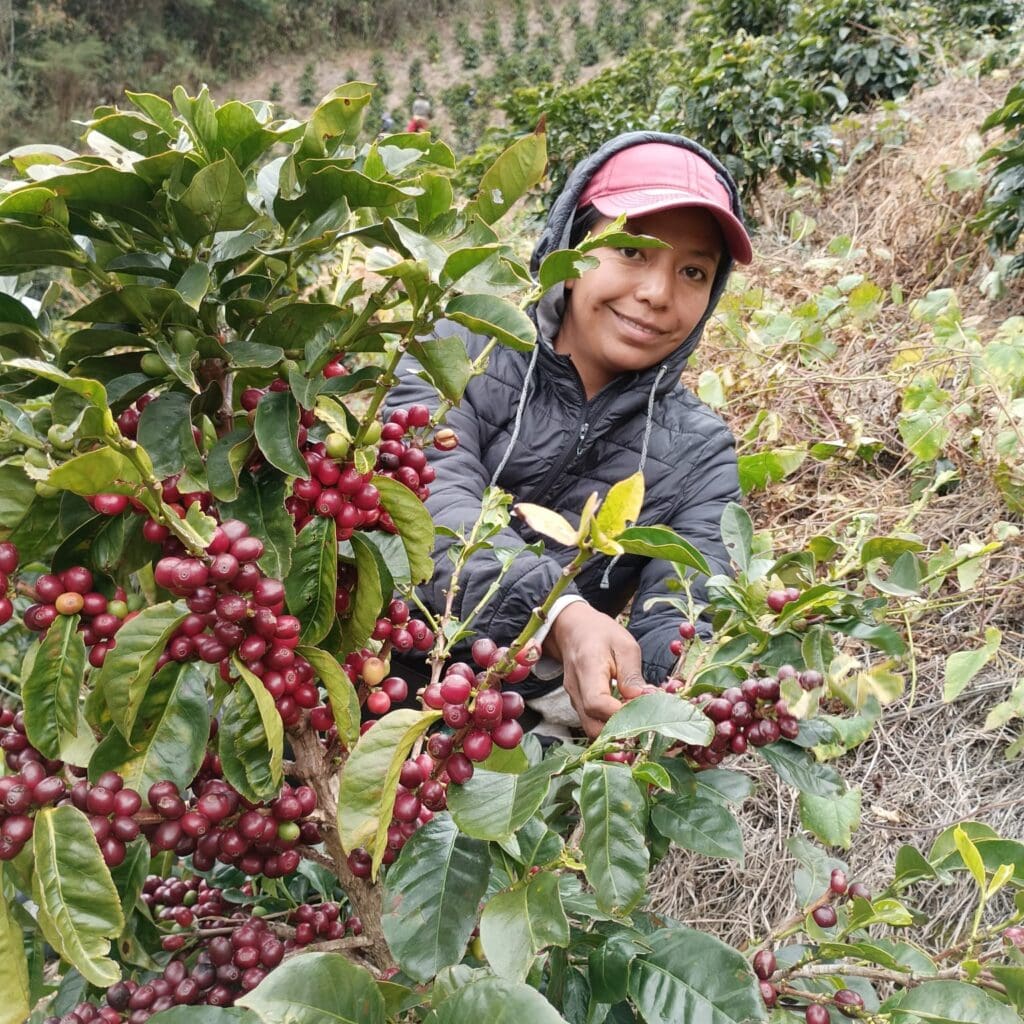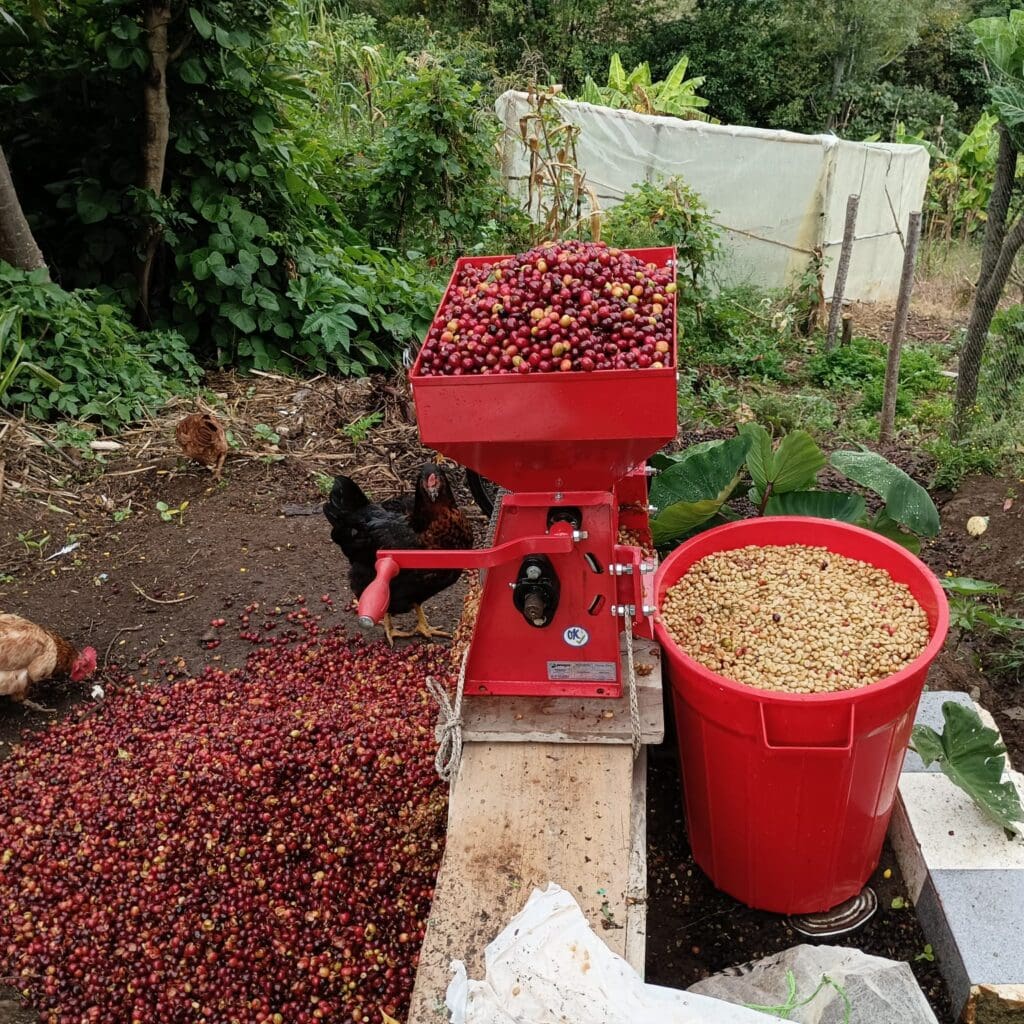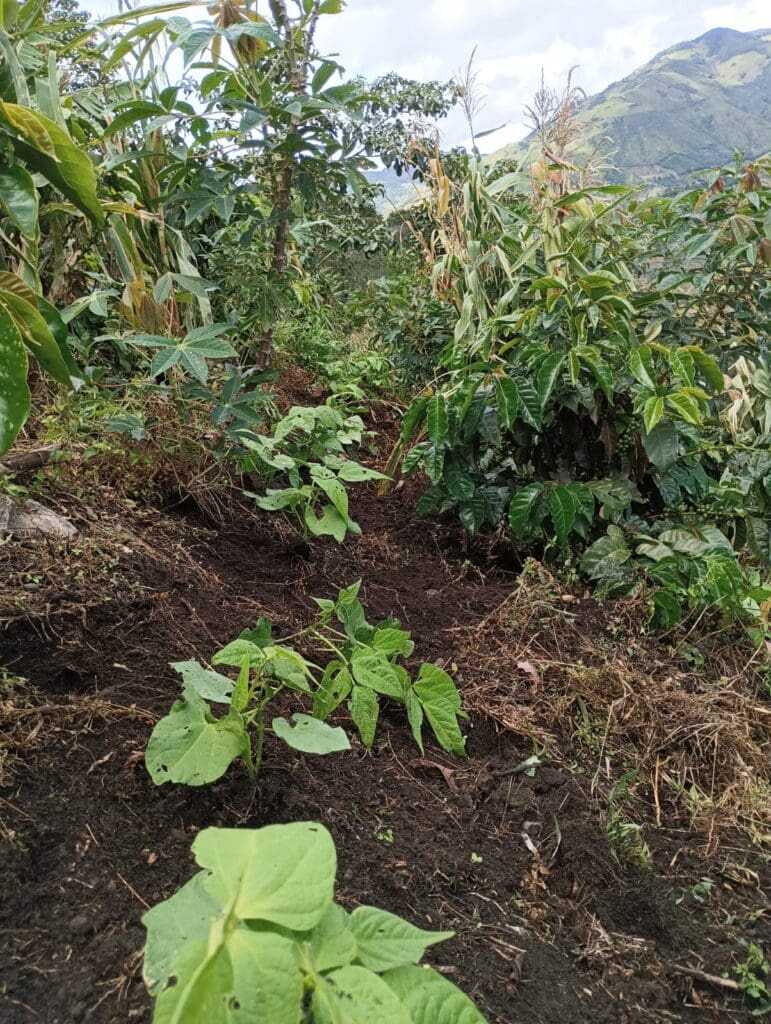Nestled within the indigenous reservation of Aponte, Pompeya, in northern Nariño, the Las Cuevitas farm tells a story of resilience and renewal. Its owner, Etelvina, is a third-generation coffee grower and a proud member of the Inga community. For 35 years, she has lived in the Pompeya village, cultivating the land with care and dedication. Initially focused on growing cereals like corn, beans, and peas, Etelvina shifted to coffee cultivation in 2018 in search of a more sustainable livelihood for her family. Today, her farm produces 3,000 kilograms of dry parchment coffee annually, embodying a transformative journey toward prosperity and peace.
Etelvina’s venture into coffee aligns with the region’s broader efforts to replace illicit crops with sustainable agriculture. These initiatives are rooted in the indigenous principle of SUMA KAUSAI—a philosophy of “Buen Vivir” or “Living Well”—which emphasizes harmony with nature and the sacred use of the land. This movement is part of a larger cultural and social renaissance in Aponte, a region scarred by conflict but rich in potential.
The Inga Aponte Indigenous Reserve, established in 2015, is situated in the Central-Eastern Cordillera, 85 kilometers northeast of Pasto. Its fertile volcanic soils, abundant natural water sources, and native forest reserves provide a unique environment for coffee cultivation. The region’s favorable climate, marked by plentiful sunlight and cool mountain breezes, ensures exceptional coffee quality. Alongside coffee, farms in the area also grow plantains, avocados, lemons, and yucca for family use, highlighting a commitment to both sustainability and self-sufficiency.
The coffee from Las Cuevitas is processed using traditional and natural methods, guided by the lunar calendar and the wisdom of Inga elders. The journey begins with selective hand-picking of cherries at peak ripeness, followed by a flotation process to select the densest cherries. Pulping is done on the same day, using minimal water to preserve resources. The pulped beans are then fermented anaerobically in 200-liter plastic tanks for 48 hours, with no additives or external microorganisms—just the native environment shaping the coffee’s attributes.
Drying takes place on a tarpaulin-covered terrace, where the beans are carefully monitored over 10 days. Etelvina’s experience determines readiness by the color of the kernels, which turn a cement hue, and the distinct sound they produce when shifted. These practices result in a coffee that not only showcases exceptional quality but also reflects the deep cultural and environmental heritage of Aponte.
Through Las Cuevitas, Etelvina honors her roots while contributing to a brighter, sustainable future for her family and her community.




